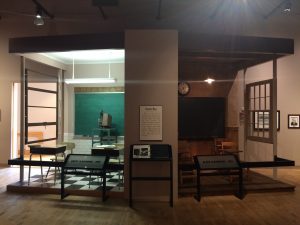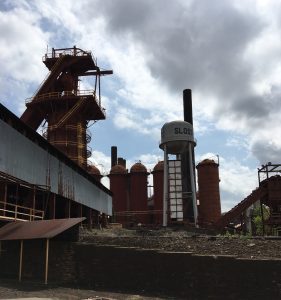
Recently I traveled to Birmingham, AL with my husband, somewhat on a whim for a long weekend. We solicited advice from friends on what we shouldn’t miss in the city, and the one thing that kept coming up in the recommendations was a trip to the Birmingham Civil Rights Institute. We added that to our list of places to visit during our trip, and planned to go on our second afternoon in the city. What we did not realize, and to our pleasant surprise, was that at almost every single place we visited, segregation and civil rights were seamlessly woven into the history.
Besides the Civil Rights Institute, the most obvious place to explore civil rights history was across the street at the 16th Street Baptist Church, where we viewed an exhibit, watched a short film, and participated in a Q&A with a church member about the bombing in 1963. But even at the Sloss Furnaces National Historic Landmark, a city park, and the location of the “original iron man,” civil rights history was front and center. If you’re looking for a long weekend trip to immerse yourself in exploring the Civil Rights Movement in America, Birmingham, AL is the place to go.

Usually my souvenir of choice from anywhere I visit is some type of book on the history of a particular neighborhood or spot that I enjoyed, or something about a person I learned about in the city. This time, I came home with a Birmingham cookbook that not only contains recipes from the city, but contains contextual and cultural information about the food and the history of Birmingham. As I often do upon returning from a trip, I check out Catalyst to find more information about something I learned. Some of the resources about Birmingham that I am looking forward to exploring can be found below:
- 4 Little Girls, an HBO documentary film about the 16th Street Church Bombing
- The most segregated city in America”: city planning and civil rights in Birmingham, 1920-1980
- But for Birmingham: the local and national movements in the civil rights struggle
